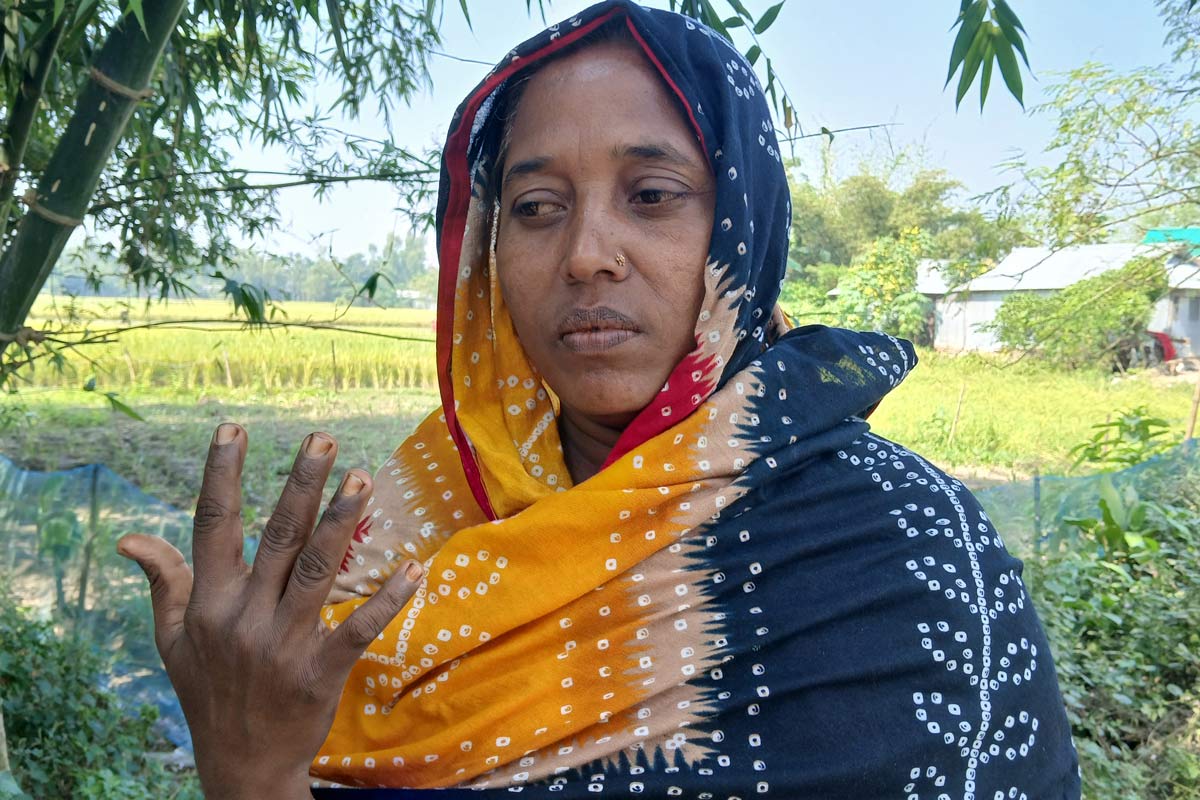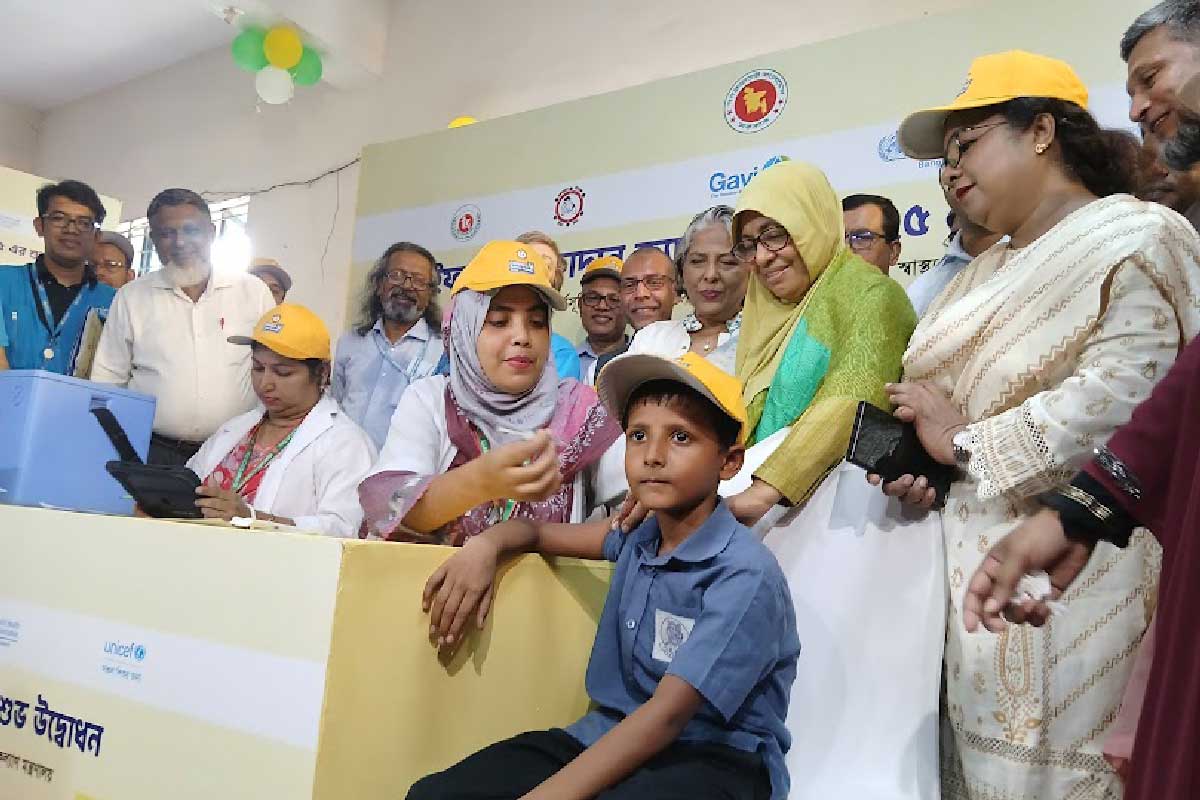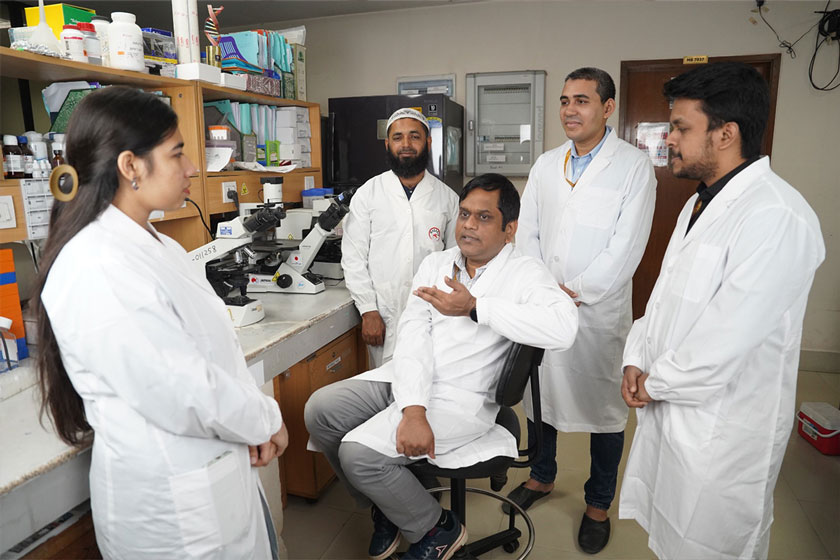How do you find the overlooked? An e-tracking system is bringing Bangladesh closer to universal coverage
Bangladesh can boast high immunisation rates – but the minority of children who remain imperfectly protected remain at risk. A new technological platform is helping caulk the cracks in the system.
- 5 December 2024
- 5 min read
- by Mohammad Al Amin
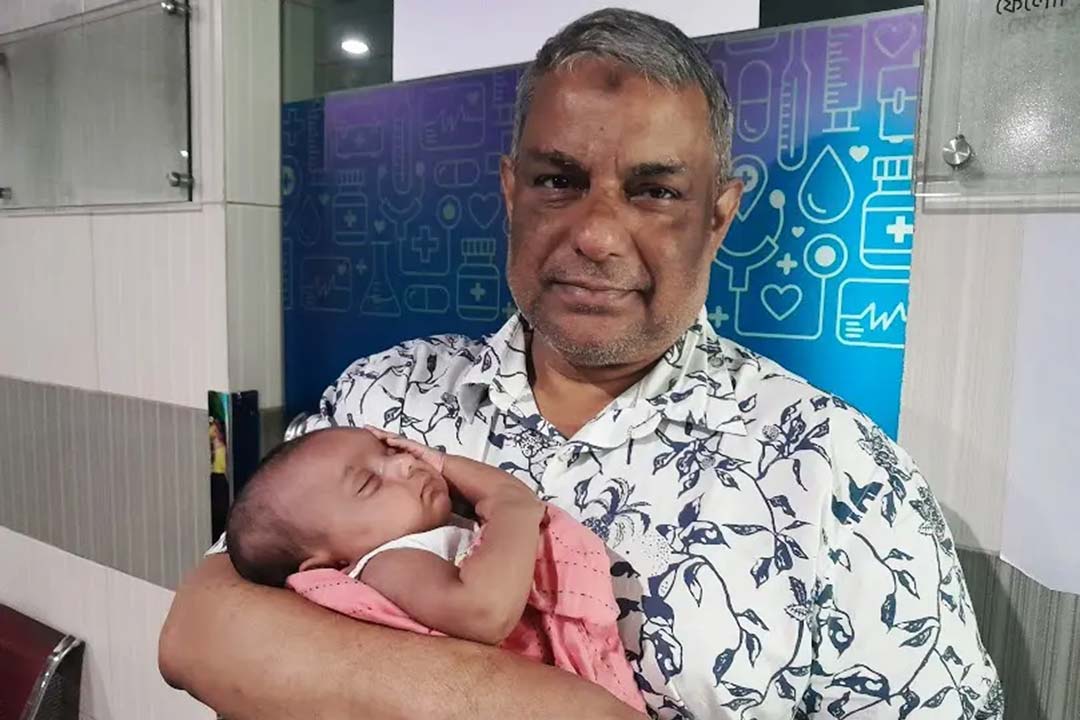
Bangladesh has introduced an e-tracking system, or an electronic vaccination register system, that health authorities hope is already helping reduce numbers of "missed" unvaccinated children.
Such "zero-dose children" constitute a relatively small minority in Bangladesh. Over the past 20 years, the country has made tremendous progress against diseases that previously accounted for a large proportion of childhood deaths, and in 2023, the country recorded an impressive 98% vaccination rate with the third dose of the basic diphtheria, tetanus and pertussis-containing vaccine (DTP3), a conventional stand-in for vaccination coverage in general. However, that small minority of unprotected children – a cohort often described as "invisible" – remains gravely at risk.
"Actually, it is tremendously working."
– Dr Md Feroz Alam, Assistant Health Officer at Zone 6 of Dhaka North City Corporation
How do you find the "invisible" few? New technological systems of oversight may certainly help. EPI Bangladesh piloted the e-tracker intervention in Moulvibazar district and Dhaka South City Corporation (Zone 5) from 2019 till the end of 2021. After the successful completion of the pilot project, the government started implementation of the e-tracker system at some places in the country from 2023, in the first phase.
The system is relatively simple: operators or vaccinators use a tablet device to hook up a child's vaccination records – as well as important identifying data, such as name, gender, guardian's name, home address, and guardians' mobile number – to a centralised database. When a baby is registered in this system, they are given a unique identification number which reliably enables them to be tracked from anywhere in the country, all the way to the end of the routine schedule.
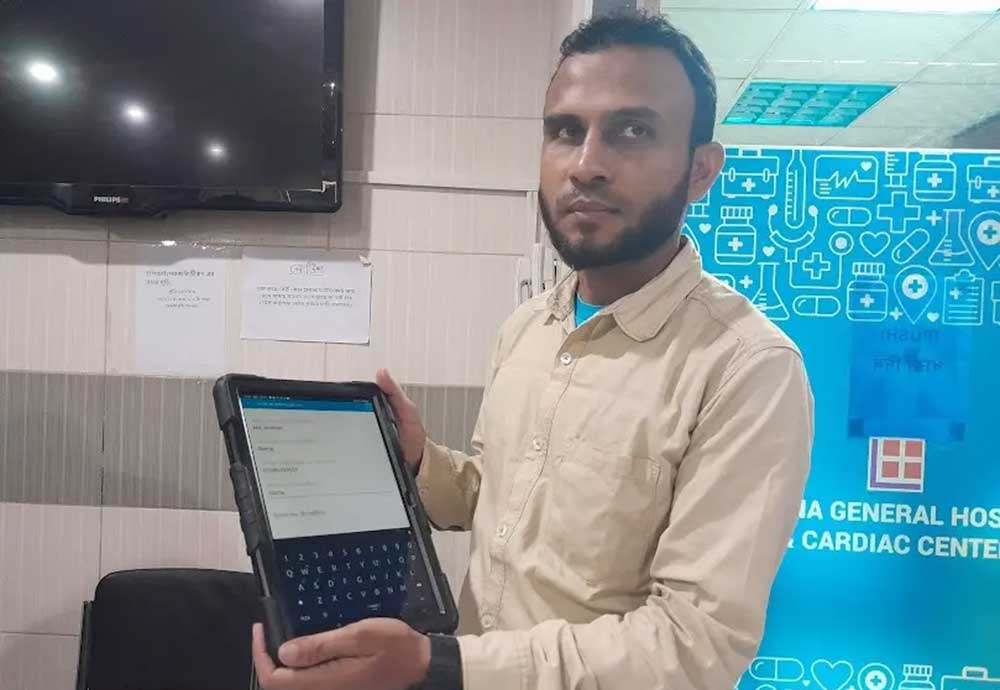
Credit: Mohammad Al Amin
Having completed a successful pilot project, the Bangladesh government has begun rolling the platform out as a fully-fledged and permanent registration system in different parts of the country. The aim is to cover all designated vaccination centres of the Expanded Programme onof Immunization (EPI) – part of the Directorate General of Health Services (DGHS) – by the end of 2025.
At Lubana General Hospital and Cardiac Centre's vaccination clinic, VaccinesWork met Abdullah Al Mamun, a businessman from Uttara Sector 11 in Dhaka, who reported feeling optimistic following his 1.5-month-old daughter Tahiah Binte Abdullah's induction into the tracking system. "Now we are relaxed thinking that our baby will not miss any dose of the EPI vaccines. We feel happy being registered virtually as we are also getting information updates regularly," he added.
SK Maruful Haque, who came to the same clinic with his 16-day-old daughter, Anaya Binte Maruf, remarked that he hoped it would represent an advantage that his baby's progress through the vaccination schedule could now be tracked easily from anywhere in the country.
Mohammad Jahid Hussain, Data Entry Operator at the EPI vaccination centre at Lubana General Hospital and Cardiac Centre in Uttara Sector-13, said the community's reception of the new system has improved over time. "At the beginning, some people felt embarrassed and asked to know about the loss and benefit of being registered in the system but in the course of time now most of the people get their babies registered in the system enthusiastically. However, we face some problems if the server remains down anytime."
Jahid Hussain said the guardians of the babies fill out a form to initiate registration. "We put the information in the e-tracking system to register online. The guardians are provided a registered number with their paper book. Whenever they will go to any centre, the baby's vaccination history can be tracked by the registration number," he added.
Have you read?
Dr Md Feroz Alam, Assistant Health Officer at Zone 6 of Dhaka North City Corporation (DNCC), said the e-tracking system was introduced in ward 51 of his zone in June last year. "The e-tracking system has made the vaccination activities easier. At the same time, it is working to ensure no zero-dose, no drop-out and no missed communities, to ensure vaccination for all. Actually, it is tremendously working," he added.
Dr Abul Fazal Md. Shahabuddin Khan, Program Manager (EPI) said the e-tracking system is being implemented in four districts: Narayanganj, Moulvibazar, Cox's Bazar and Jamalpur, and in eight city corporation areas:- Dhaka North, Dhaka South, Narayanganj, Gazipur, Khulna, Rangpur, Sylhet, Cumilla and Chattagram.
"We have already completed training for the concerned staff in Rangpur, Rajshahi, Sylhet and Barishal divisions and 34 districts across the country. We hope the training in the rest of the districts and divisions will be completed within a short time as we have planned to implement the e-tracking system all over the country from June 2025," Shahabuddin added.
Describing the benefit of the e-tracker, Md Monjurul Islam Fuad, Deputy Program Manager (Field Service, EPI) at the DGHS said the system will track zero-dose, drop-out, left out and missed communities.
“If this system spreads all over the country then zero-dose, drop-out and missed communit[ies] will be addressed. Vaccination will ensure no one is left behind,”
– Dr Tajul Islam A Bari, vaccine expert
"It will be helpful to reduce invalid doses in city corporation level, fixation of target, to ensure proper utilisation of vaccine and logistics and appropriate report-making in the immunisation activities," he added.
Talking to VaccinesWork, vaccine expert Dr Tajul Islam A Bari, a former manager of the EPI, said, "If this system spreads all over the country then zero-dose, drop-out and missed communit[ies] will be addressed. Vaccination will ensure no one is left behind," he added.
The electronic vaccination register allows health workers to monitor the vaccination history of children as the system is able to track children in need of vaccines, identify the ones who are delayed, and send SMS alerts to the parents for upcoming immunisation phases.
A study article published findings from the pilot in the Lancet in September 2023, and found the e-tracker "opened the possibility of tracking better" coverage, dropouts, and vaccination timeliness for Bangladesh.
